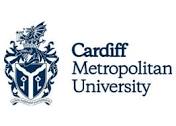The new MSc in Economics and Finance has been designed to develop postgraduate students who are equipped academically to succeed in an increasingly complicated and challenging global workplace.

In 2008 cataclysmic events shattered the world of Finance and caused shockwaves through the rest of the global economy. Some realised that change would be needed but none forecast that less than a decade on the sector would be so radically and irrevocably changed.
The new MSc in Economics and Finance has been designed to develop postgraduate students who are equipped academically to succeed in an increasingly complicated and challenging global workplace.
When you graduate, you will leave as a professional economist, who is equipped for an academic career, but who crucially is also ready to use economic thinking in the world outside academia. Well qualified economists are in demand in government, industry and, obviously commerce.
All the Finance based Masters programmes within the School of Management have full access to the Financial Times on-line.
Course Content:
Please note that optional modules run subject to demand and availability.
Learning & Teaching:
You will be taught by academically qualified and enthusiastic staff with research and consultancy experience and links to industry. Your high quality learning experience comprises lectures and discussions supported by group work, presentations, statistical computer labs and case studies. All modules are also supported by Moodle, the virtual learning environment.
There is a common shared spine within these programmes which overlaps with existing Masters level programmes within Cardiff School of Management. Consequently students will, for some modules, be taught with students on the MBA and MSc Financial Management programmes. The teaching team consider this a strength of the portfolio.
About
Cardiff Met is proud of all its alumni and we continue to support you as you embark on life after university.
We provide early career guidance for recent graduates and aim to keep you connected throughout your career.
We also provide opportunities for you to inspire our students by speaking at events or offering work experience opportunities, and this is just the tip of the iceberg!
We love hearing about where life has taken you since graduating and keeping you up to date with all that's going on at Cardiff Met.
Our history
Our history traces back to 1865 when the School of Art first opened in the Old Free Library in Cardiff.
Since we developed into a university, we have remained rooted in Wales while providing practice-focused and professionally oriented education to students from around the globe.
The institution has gone through numerous name changes over the years, eventually becoming what we know today as Cardiff Metropolitan University:
University of Wales Institute, Cardiff (UWIC) (1996 - 2011)
Cardiff Institute of Higher Education (1988 - 1996)
South Glamorgan Institute of Higher Education (1976 - 1988)
Cardiff College of Food Technology and Commerce (1971 - 1976)
Cardiff College of Education (1970 - 1976)
Llandaff College of Technology (1970 - 1976)
College of Commerce (1968 - 1971)
Reardon Smith Nautical College (1956 - 1970)
Cardiff College of Food Technology (1957 - 1971)
Llandaff Technical College (1954 - 1970)
Cardiff College of Art (1949 - 1976)
Cardiff Teacher Training College (1945 - 1970)
School of Nautical Cookery (1911 - 1973)
Cardiff College of Technology and Commerce (1949 - 1961)
Cardiff Technical College (1916 - 1949)
Cardiff Technical School (1889 - 1916)
Cardiff School of Science & Art (1865 - 1916)
© 2025 coursetakers.com All Rights Reserved. Terms and Conditions of use | Privacy Policy